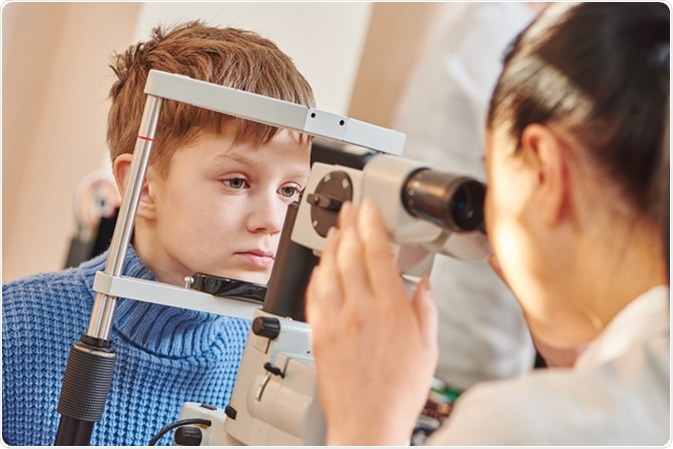Andalusia Eye Facility: Introducing Vision Take Care Of Neighborhood Wellness
Andalusia Eye Facility: Introducing Vision Take Care Of Neighborhood Wellness
Blog Article
Is Refractive Surgical Treatment Right for You? Variables to Consider for Better Eyecare
In the world of eye treatment, the decision to go through refractive surgical procedure is a crucial one that requires thoughtful consideration. From the ins and outs of one's ocular health and wellness to the intricacies of individual assumptions and day-to-day routines, each element holds relevance in the more comprehensive landscape of refractive surgery candidateship.
Eye Wellness Analysis
When taking into consideration refractive surgical treatment, a detailed eye health and wellness assessment is essential to assess the viability of the treatment for each person. eye center andalusia. This examination involves a collection of examinations and examinations carried out by an eye care specialist to figure out the overall wellness of the eyes, the existence of any type of hidden conditions, and the stability of the refractive mistake
During the analysis, different elements are considered, such as the person's case history, existing eye prescription, corneal density, student size, and tear film quality. These assessments aid to determine any contraindications to refractive surgical procedure, such as corneal problems, cataracts, or without treatment eye infections. Furthermore, the analysis aids to handle patient assumptions pertaining to the possible results of the surgery based on their one-of-a-kind eye attributes.
Eventually, the eye wellness assessment is important in ensuring the safety and performance of refractive surgery, as it supplies valuable insights right into the individual's eye wellness standing and helps figure out one of the most suitable therapy choices for attaining optimum aesthetic end results. (eye center andalusia)
Lifestyle Assessment
A detailed lifestyle assessment is indispensable in establishing the suitability of refractive surgery for a person's aesthetic modification needs. Way of living elements such as line of work, pastimes, and day-to-day activities play an essential duty in the decision-making process pertaining to refractive surgical treatment.
Additionally, way of life practices such as sports participation, outdoor tasks, or also skin care regimens can influence the healing process and total success of refractive surgery. By conducting an extensive way of life assessment, eye care professionals can tailor their referrals and therapy strategies to satisfy the special demands of each person, inevitably leading to boosted aesthetic end results and satisfaction.
Expectation Alignment

Individuals require to comprehend that while lots of people accomplish 20/20 vision or better complying with refractive surgery, some may still require glasses for certain tasks like analysis or driving at night. Handling these assumptions helps stop disappointment and discontentment post-surgery, leading to an extra positive overall experience for the individual.
Threat Analysis

Elements that might boost the risk of issues include age, particular medical problems like autoimmune conditions, unsteady vision prescription, slim corneas, and unrealistic individual assumptions. Additionally, picking a skilled and skilled specialist, adhering to pre and post-operative care directions vigilantly, and divulging any appropriate medical background can assist alleviate threats.
To minimize the probability of difficulties, ophthalmologists conduct complete pre-operative analyses to identify any contraindications to surgical treatment. They likewise go over the possible threats and advantages with patients during the consultation process. By engaging in open communication and shared decision-making, both the ophthalmologist and the client can collaborate to determine if refractive surgery is the best choice based on individual risk Learn More accounts and wanted end results.
Appointment Relevance
Taking into consideration the essential duty of educated decision-making in examining dangers and prospective complications in refractive surgery, the consultation procedure holds considerable value in directing patients in the direction of optimum outcomes. During the examination, the ophthalmologist reviews the individual's eye health, refractive mistakes, and general viability for surgical treatment. This first analysis is crucial in establishing one of the most suitable treatment for every individual, taking right into account factors such as corneal thickness, pupil dimension, and existing eye conditions.
Furthermore, the examination offers as a possibility for patients to review their expectations, problems, and any concerns they may have relating to the surgery. Clear interaction in between helpful resources the patient and the cosmetic surgeon is vital to make certain realistic assumptions and a thorough understanding of the possible dangers and advantages included.
Additionally, the appointment permits the cosmetic surgeon to describe the various medical options readily available, their respective results, and the post-operative care required. This thorough discussion empowers clients to make educated choices regarding their eye care, causing far better complete satisfaction and results post-surgery.
Conclusion
Finally, people thinking about refractive surgical procedure must undertake a thorough eye health and wellness evaluation, assess their way of living behaviors, align their expectations with possible outcomes, assess the involved risks, and focus on assessments with eye care experts. These variables play a critical function in identifying the suitability of refractive surgical treatment for each individual, making certain optimal end results and satisfaction with the treatment.
Patients thinking about refractive surgical treatment typically have high expectations pertaining to the end results, anticipating ideal vision without the need for glasses or get in touch with lenses. While refractive surgical treatment can substantially improve vision and decrease dependency on aesthetic aids, it is vital for individuals to comprehend that results might differ based on specific aspects such as the level of refractive mistake, corneal thickness, and overall eye health.
By engaging in open communication and shared decision-making, both the eye doctor and the patient can work with each other to figure out if refractive surgery is the right choice based on private danger accounts and desired results.
Thinking about the vital function of informed decision-making in analyzing threats and possible difficulties in refractive surgical treatment, the examination process holds substantial significance in leading people in the direction of optimal end results. Throughout the examination, the ophthalmologist assesses the person's eye health, important source refractive mistakes, and total viability for surgery.
Report this page